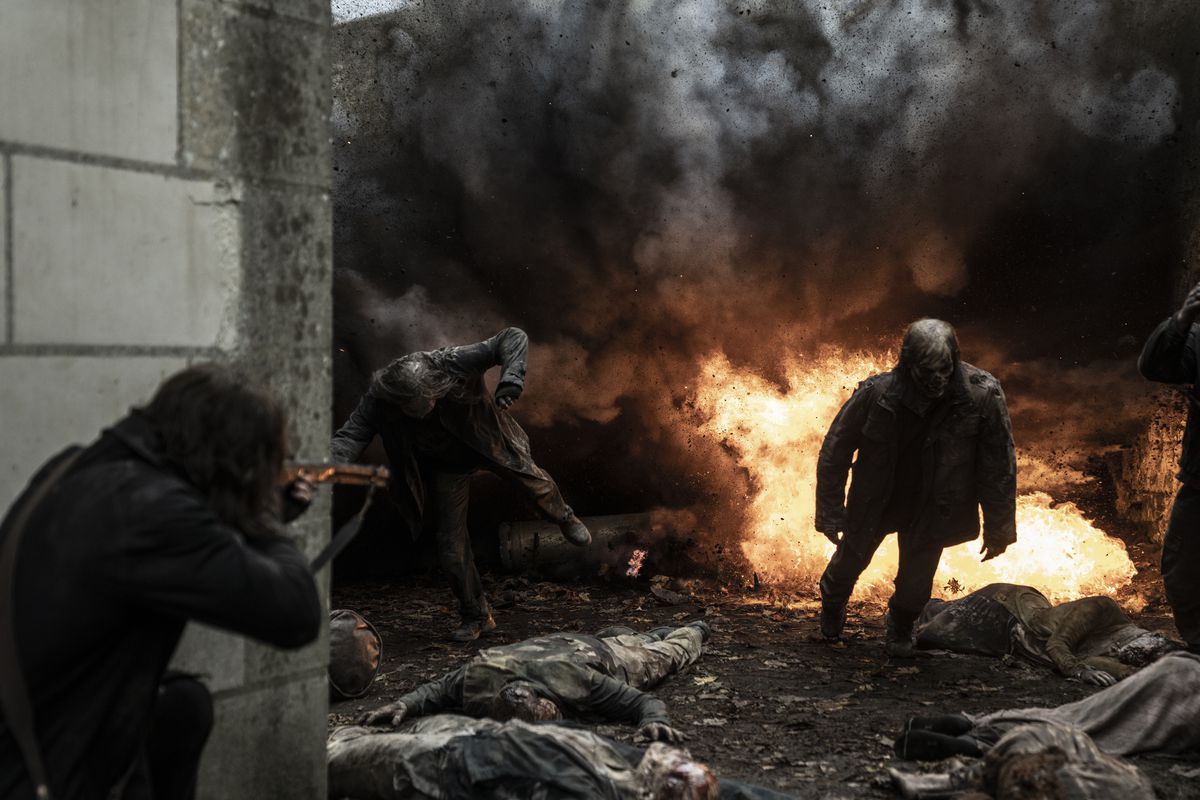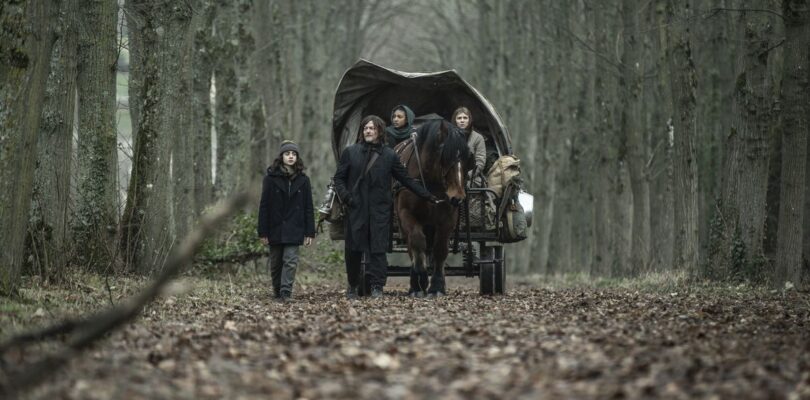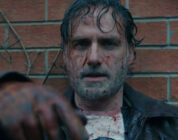Considering how much the cast would later expand, growing to include various factions and hierarchies of leadership, returning to the first few seasons of The Walking Dead can feel a bit refreshing. The premiere episode especially, which saw series figurehead Rick Grimes trying to survive in a zombified hellscape, is a remarkably stripped-down approach in comparison to what would come later. It’s a feeling Greg Nicotero, special makeup effects expert and co-founder of KNB EFX Group, would try to recapture when working on the latest spinoff, The Walking Dead: Daryl Dixon, which premieres Sept. 10 on AMC.
Nicotero plays a lot of roles on Daryl Dixon — he directs a few episodes, is an executive producer, and still maintains his guiding hand in the franchise’s gory look. He’s been a part of The Walking Dead for almost 15 years now, having been around since its debut, back when it was overseen by then-showrunner Frank Darabont. He’d been brought on because they needed his expertise, and no one knew how to put together a zombie horde with ghoulish practical effects quite like Nicotero — his main introduction to the business had been working with makeup guru Tom Savini on George Romero’s Day of the Dead.
It was this beginning Nicotero wanted to return to, at least in spirit. “It was really like starting all over again and doing what Frank Darabont and I did in season 1,” Nicotero said of this new Daryl Dixon-led project. Here, we find Daryl, the rough-edged co-lead and series mascot (“The Robin to Andrew Lincoln’s Batman,” as Nicotero puts it), stranded in France and desperate to get back home to the U.S. But despite it being a spinoff of a series that lasted for 11 seasons, remarkably little research needs to be done to get up to speed with the new adventures of Daryl. Like the first episode of the original series, Daryl Dixon is a mostly contained experience, set against the backdrop of “the romanticism of Europe and the beautiful landscapes,” featuring locations like the Eiffel Tower and, in a cool touch, the Paris Catacombs.
Photo: Emmanuel Guimier/AMC
It wasn’t just Nicotero that wanted a more bare-bones narrative. Norman Reedus, the actor playing Daryl, had always “really loved the idea of sort of emulating old shows like Then Came Bronson and Kung Fu or even The Incredible Hulk,” Nicotero explained. “You come across the person and over the course of the episode, they meet people, and then at the end of the episode, they leave. The people are changed because of it, and he’s changed because of it.” Daryl, who had spent much of The Walking Dead following Rick and his group, is now a leader of his own, impacting the lives of others with his own brand of gruff yet charming loyalty.
Reedus had never gotten the chance to really carry the series, having for so long been a part of an ever-expanding cast. And now, as the nucleus of his own new “found family” unit (Clémence Poésy, Laika Blanc Francard, and Louis Puech Scigliuzzi play the other members of his traveling group), they’re able to move the series beyond just being “The Walking Dead in Paris.” By the end, The Walking Dead had come to rely on a decade of continuity, and the safe bet would be to just replicate its last season’s offerings in a new place, with Daryl fitting into a familiar role. Instead, Daryl, so long an emblem of sweatily shooting zombies in the South with a crossbow, is now the heroic glue that holds the show together.
“I think what was really the most important thing on Daryl Dixon was to go back to the DNA of what made the original first few seasons of The Walking Dead so good,” Nicotero said, “which was keeping the stories singular and focused. If you really think about the original, it was Rick searching for his family. We’ve gone back to those sort of building blocks.” It’s a goal that fuels the entire show. Just as much of the early Walking Dead was about establishing a kind of purpose for its characters, Daryl Dixon sees the same drive being lent to its titular protagonist.
“I think Daryl feels like there’s more for him to do. Daryl knows that there are other people in the world out there that need him,” Nicotero said. “Daryl really does have a big heart, and would do anything for people, even though he may start for the wrong reasons. He can’t help himself.”

Photo: Emmanuel Guimier/AMC
Of course, it wouldn’t be The Walking Dead without a healthy diet of zombie thrills and gruesome special effects work, the kinds of things that Nicotero made a name for himself on. And Daryl Dixon doesn’t disappoint there — there’s an early disembowelment that might have you wincing, and one set-piece in the series includes a macabre orchestra of sorts. “Look, it’s always a thin line that you tread, because you don’t want to take the teeth out of your monster,” Nicotero explained, talking about this specific show but in a way that also applies to a nearly 15-year-old franchise that has expanded into a merchandising behemoth.
Nicotero, though, doesn’t see spinoffs like Daryl Dixon as diluting The Walking Dead. Rather, they explore different aspects of it. The recent Dead City, starring enemies Maggie and Negan, was almost a “continuation” of The Walking Dead. Meanwhile, next year’s The Walking Dead: The Ones Who Live sends the katana-wielding Michonne on a “journey” to find Rick Grimes, one that takes her far away from the communities that she’d previously been a part of.
And Daryl Dixon is a chance to rediscover the efficacy of what many consider the show’s “glory years,” and give Daryl the narrative spotlight that he’s always just been on the cusp of. It’s an effort that Nicotero is particularly proud of. When told that it’s one of my favorite installments in the entire franchise, Nicotero quickly responded: “Mine too, by the way.”




